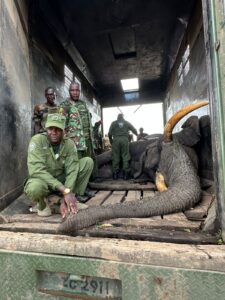Mara Elephant Project rangers started the third quarter off in a high human-elephant conflict (HEC) season. In July alone, MEP rangers responded to 25 HEC incidents but recorded no elephant deaths as a result. We started moving out of the high HEC season in August, which results in MEP rangers responding to 13 incidents but only one elephant death in Olkinyei Conservancy as a result. As a result of this elephant death, we deployed the intelligence unit to investigate the increase in spearing attacks in this area.

MEP rangers in July mending fences that were broken by elephants in the busy HEC season.
In August we also saw an increase in HEC incidents in Olarro Conservancy, so we deployed a MEP ranger unit to this area with one of the new Land Cruisers to decrease their response time. MEP’s collared elephant Olchoda kept our rangers busy as he and three other bulls were continuously crop raiding in the Enkutoto area. We deployed many of the techniques and technologies in the MEP HEC mitigation kit like warning beacons, firecrackers, lights and even called in the helicopter a few times in hopes of deterring them from this area.
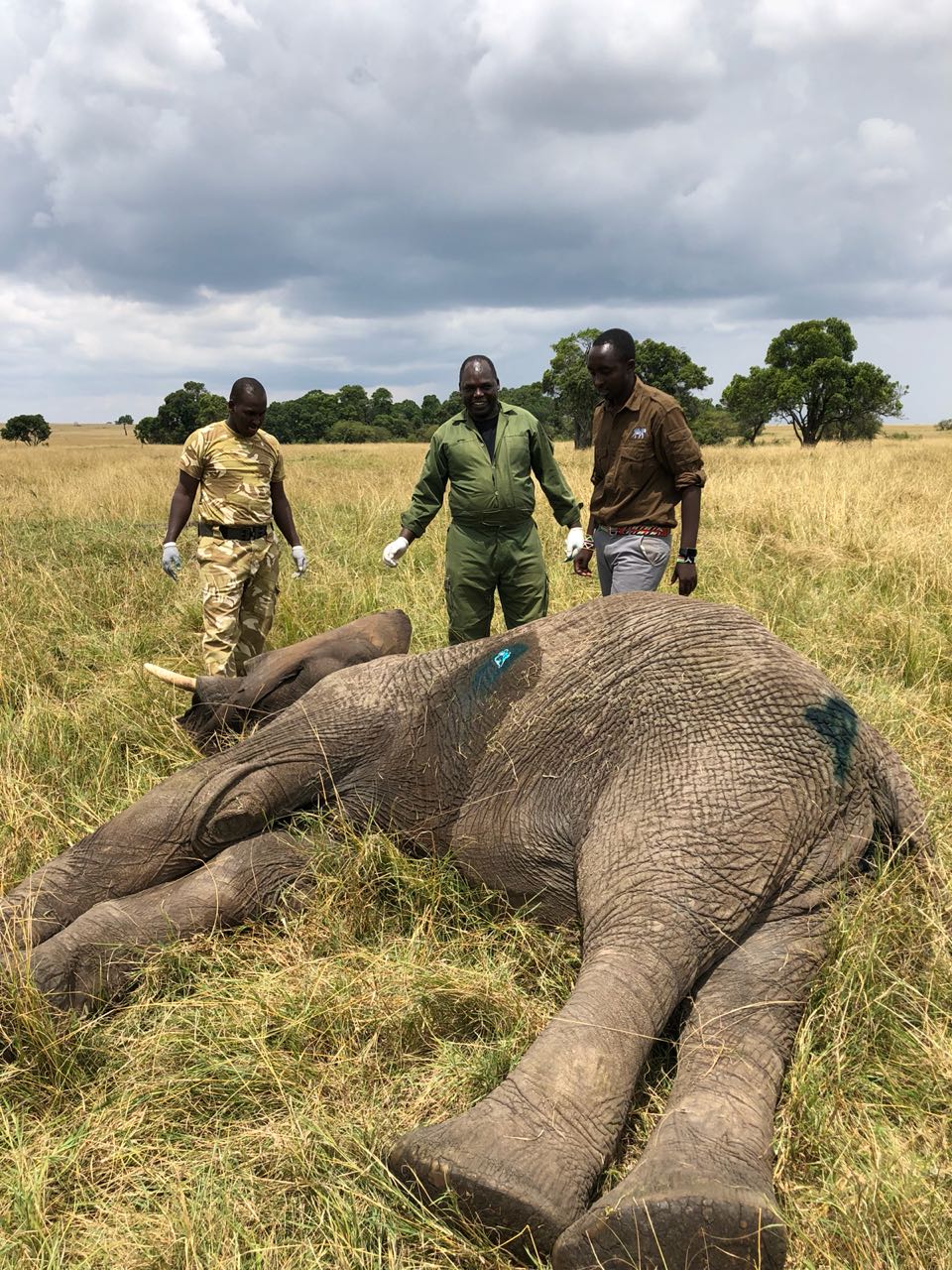
Dr. Limo with MEP Tracking Manager Wilson Sairowua after treating a wounded elephant on August 27.
All of this brings us to September, a normally low HEC season. MEP rangers only responded to seven HEC incidents in September; however, we counted three dead elephants as a result of HEC and seven dead elephants total for the month! This was one of the deadliest months for elephants in MEP’s history and to say this is concerning would be an understatement. The conflict related causes of death especially in the Mara North Conservancy area means that there is a new cell attacking elephants in the area. Usually we see more conflict related deaths during the crop ripening seasons, but this increased number of deaths corresponds with the drying up of the area. This leaves us to believe that the conflict that elephants are now coming into is a result of their access to limited water and grass resources and the competition with herders for it.
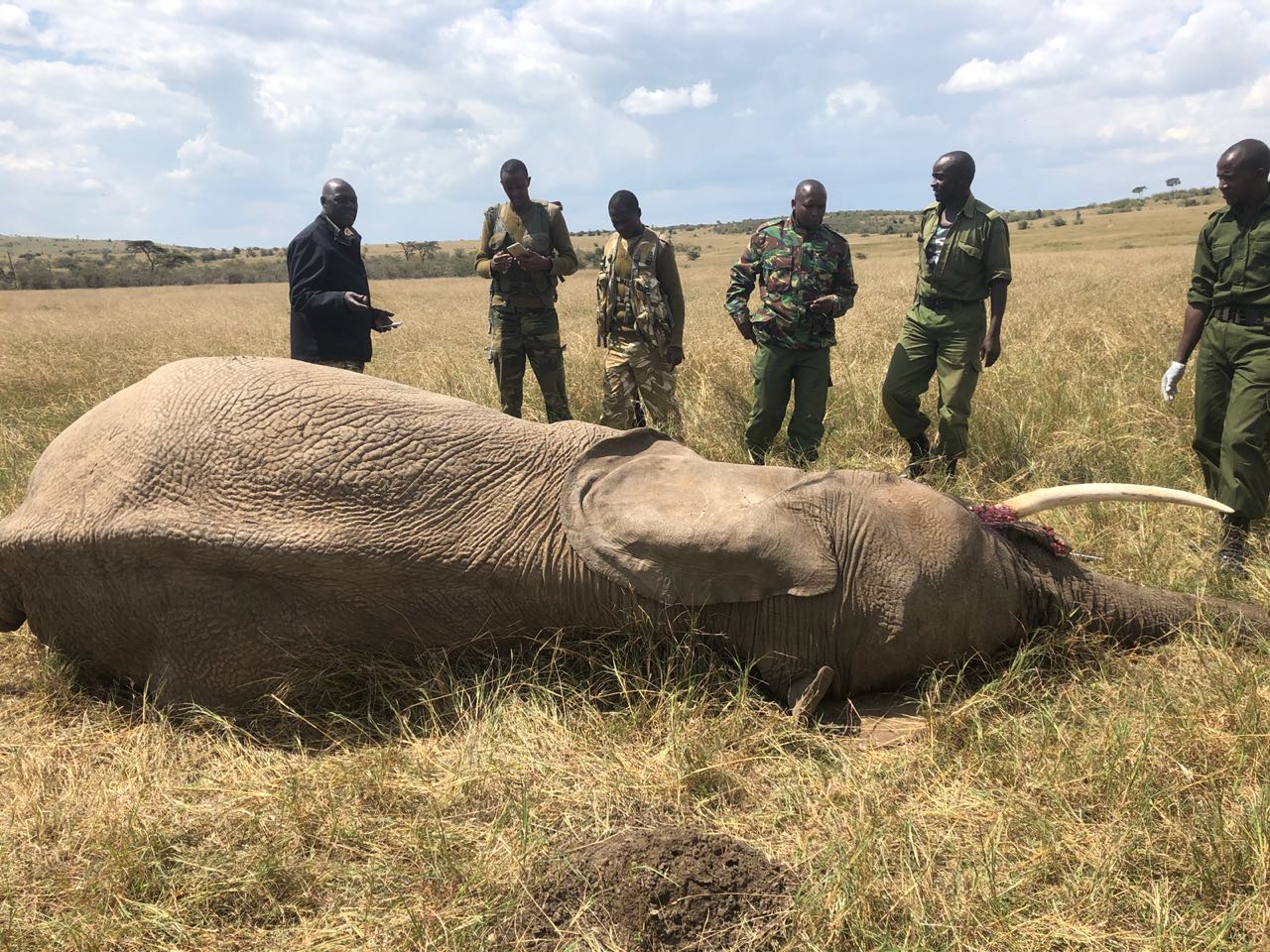
The carcass found in Mara North Conservancy on September 4.
The elephant deaths attributed specifically to spearing continues to be the most worrisome and MEP has deployed our rangers to HEC hotspots and will monitor this trend closely. Vet Dr. Limo from the Kenya Wildlife Service (KWS) took samples from all of the elephants to be sent to the toxicology lab at KWS HQ in Nairobi to test for poisoning. We had a poisoning incident in 2016 where six elephants died in the same sort of area including collared elephant “Lina”. These recent cases are very similar. One method of poisoning elephants has been leaving out poisoned pumpkins a favorite of elephants. This results in a slow and very painful death. Only one of the seven elephants was a clear case of a poisoned arrow attack.
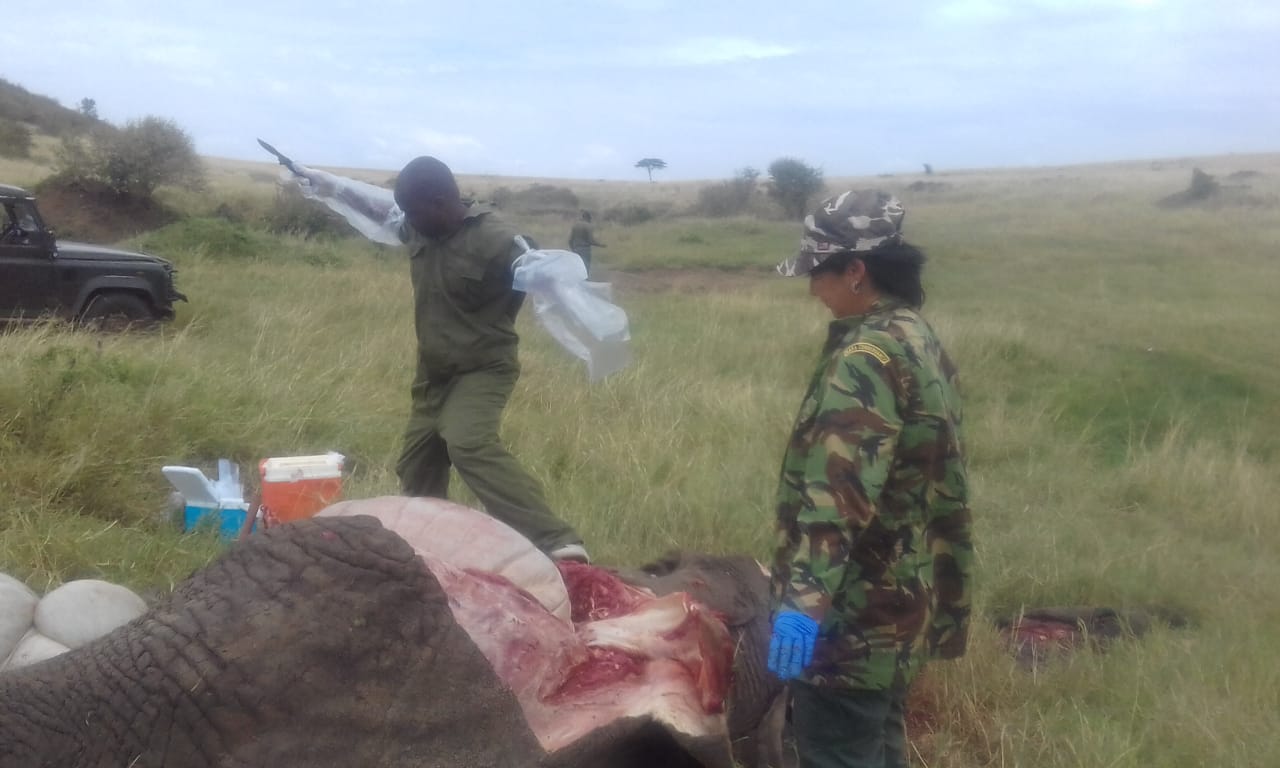
Dr. Limo’s staff collecting samples from the assumed elephant poisoning.
Some good news is that the MEP intelligence unit continues to have great success. In July, based on the intelligence they gathered, KWS was able to arrest four ivory middlemen and seize 48 kg of ivory. In addition to this accomplishment, the intelligence team has also employed three new intelligence gathering sources in Tanzania. This success continued into August with three suspects arrested and 60 kg of ivory recovered and in September three suspects arrested with the seizure of 4 kg of ivory and 21 kg of illegal bushmeat.
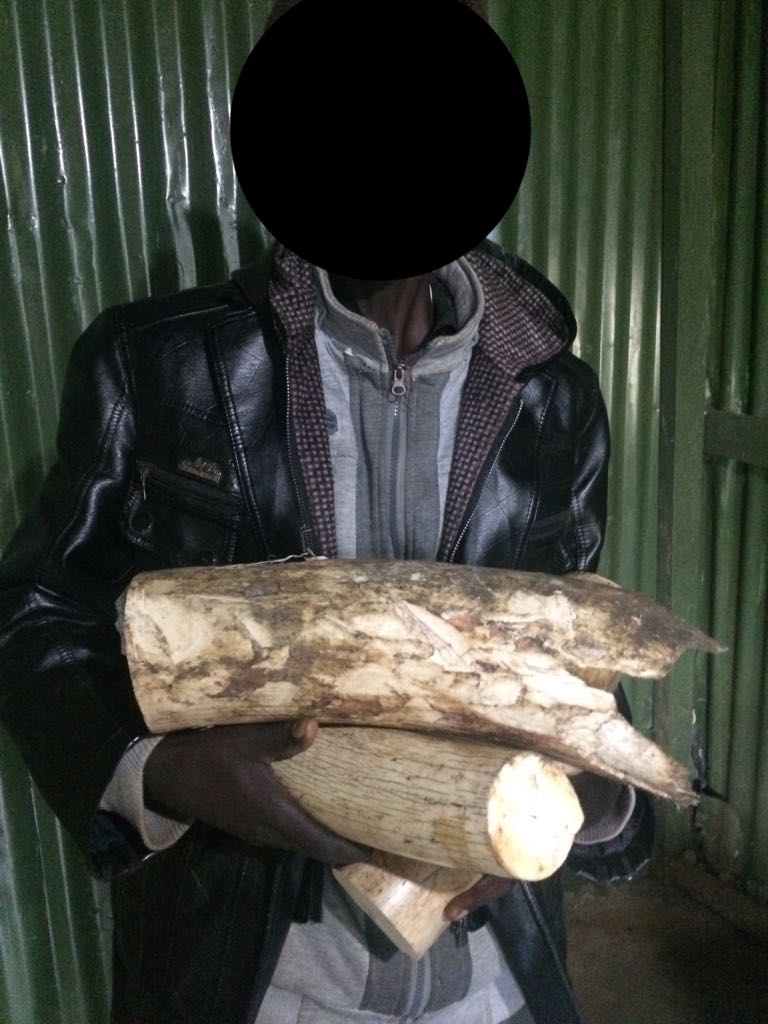
On July 12, the KWS along with the help of MEP intelligence arrested one suspected in Kilgoris with 11 kg of ivory.
Finally, we’re proud to announce that a MEP intelligence ranger was awarded the Paradise International Foundation’s inaugural African Ranger Award for 2018. The award is given to 50 rangers from across Africa who have excelled. The ranger won a prize of $3,000 and travelled to Cape Town, South Africa along with MEP’s tracking manager and C.E.O. to accept the award in person.
Overall, in the third quarter, MEP rangers covered 3,847 km on foot, 27,664 km in a vehicle and 31,627 km on a motorbike all totaling 3,772 hours out on patrol. They removed 149 snares, seized 112 kg of ivory, 331 kg of bushmeat and arrested 13 suspected poachers.
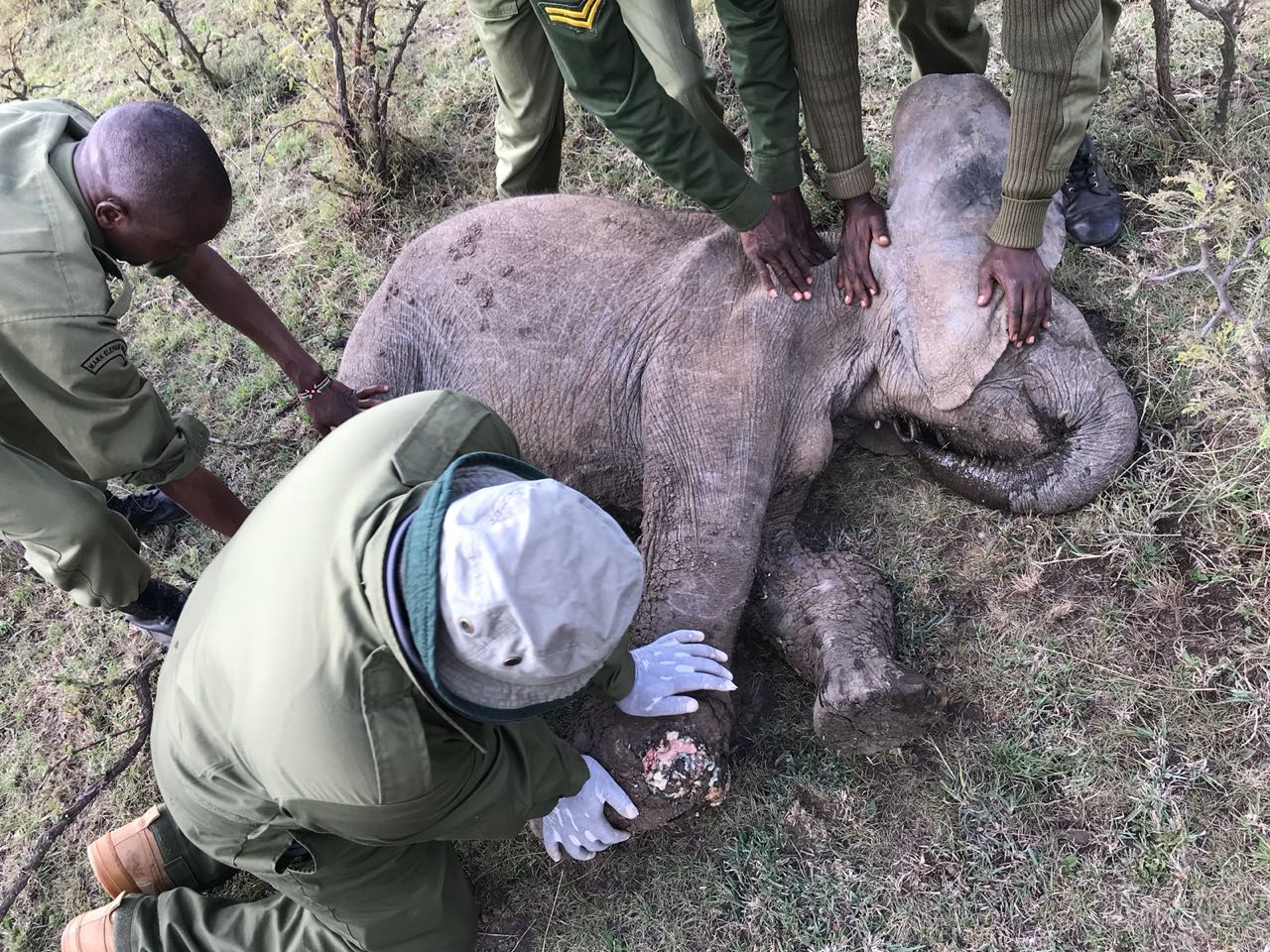
In August, MEP rangers responded to a snare wound on a baby elephant.

MEP Tracking Manager Wilson Sairowua gave an update on the little girl injured by an elephant last year in a case of human-elephant conflict that received a lot of interest. Wilson has since taken over the girls school fees and she’s become a MEP champion through her exposure to our work. On July 31, Mara Elephant Project celebrated World Ranger Day by highlighting MEP’s ranger successes over 2018. From all of the MEP rangers, thank you for the continued support.
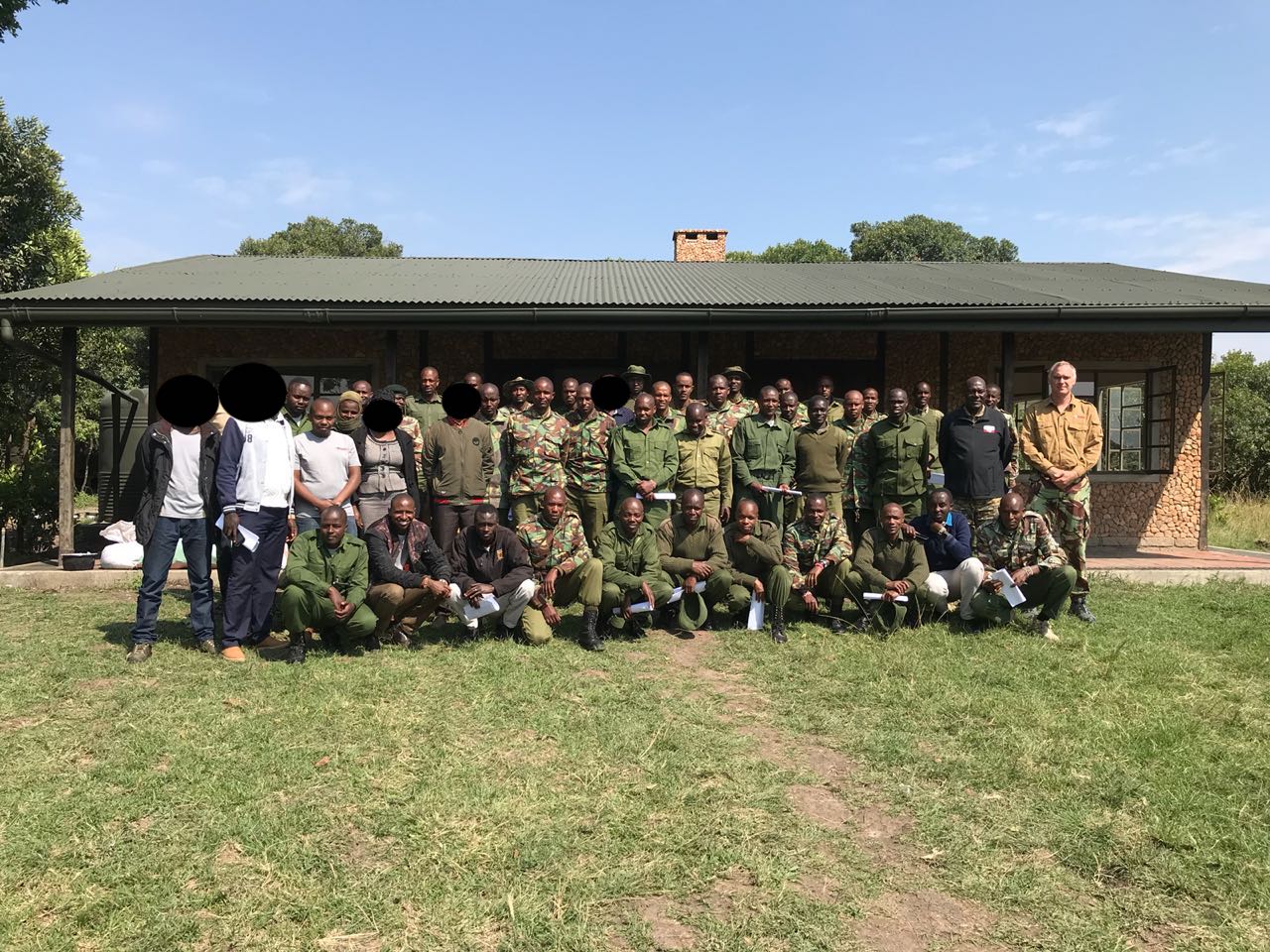 The entire Mara Elephant Project team at the September 1 all staff meeting at MEP HQ.
The entire Mara Elephant Project team at the September 1 all staff meeting at MEP HQ.


